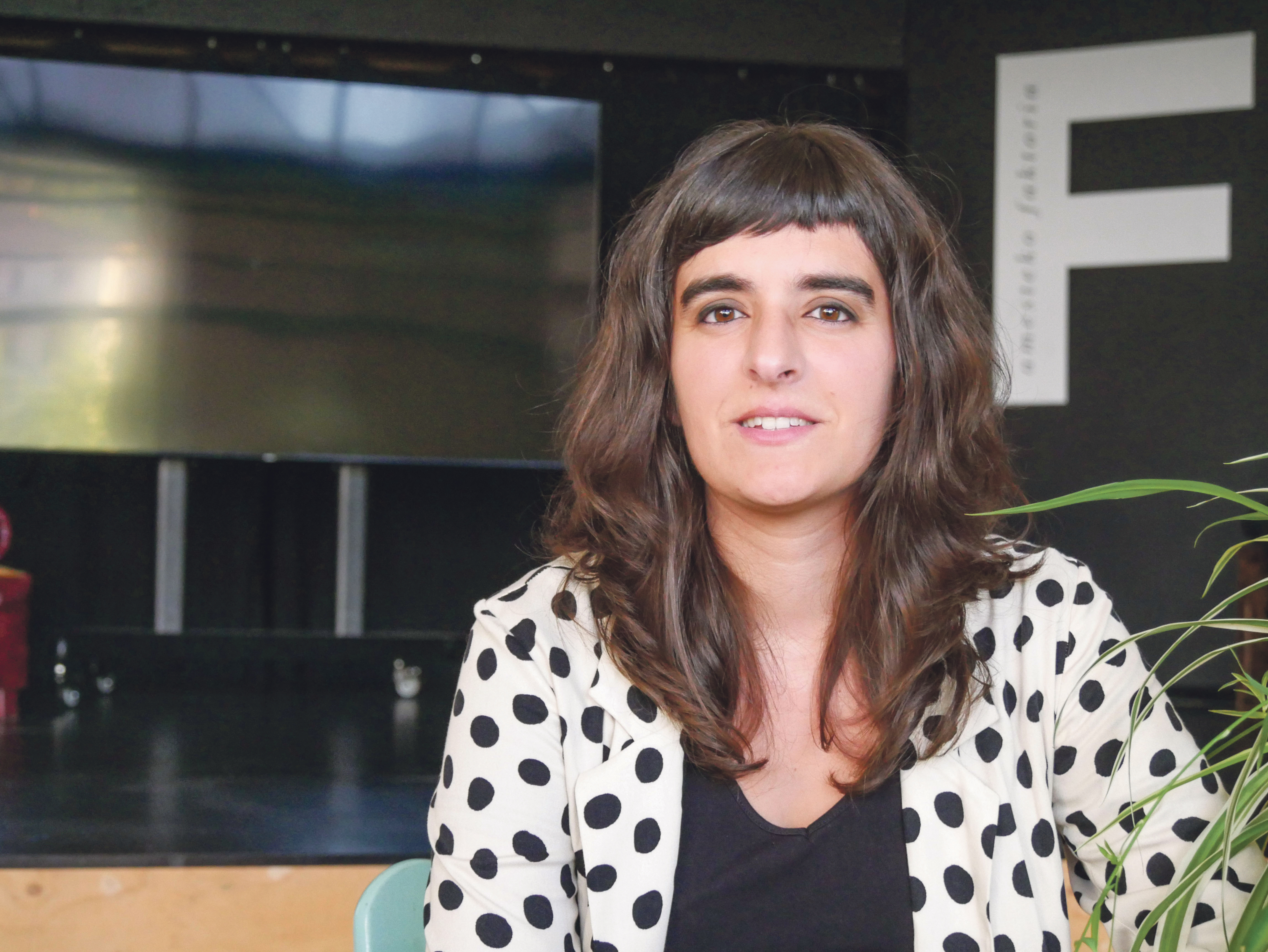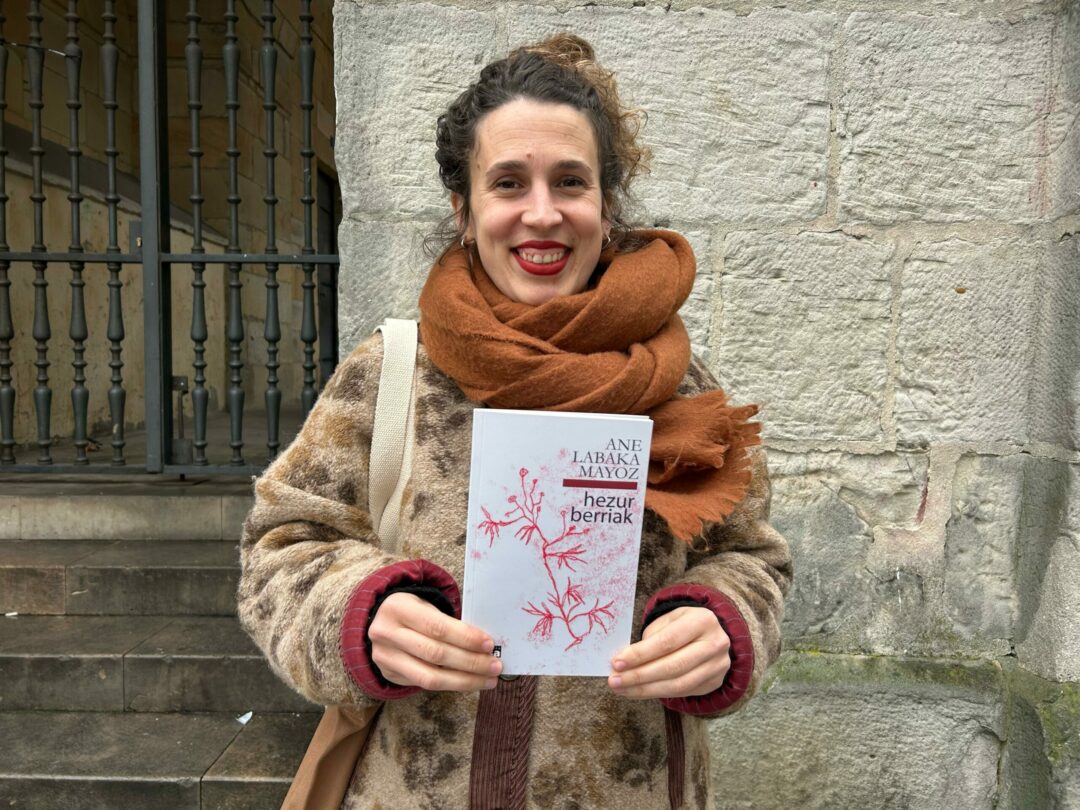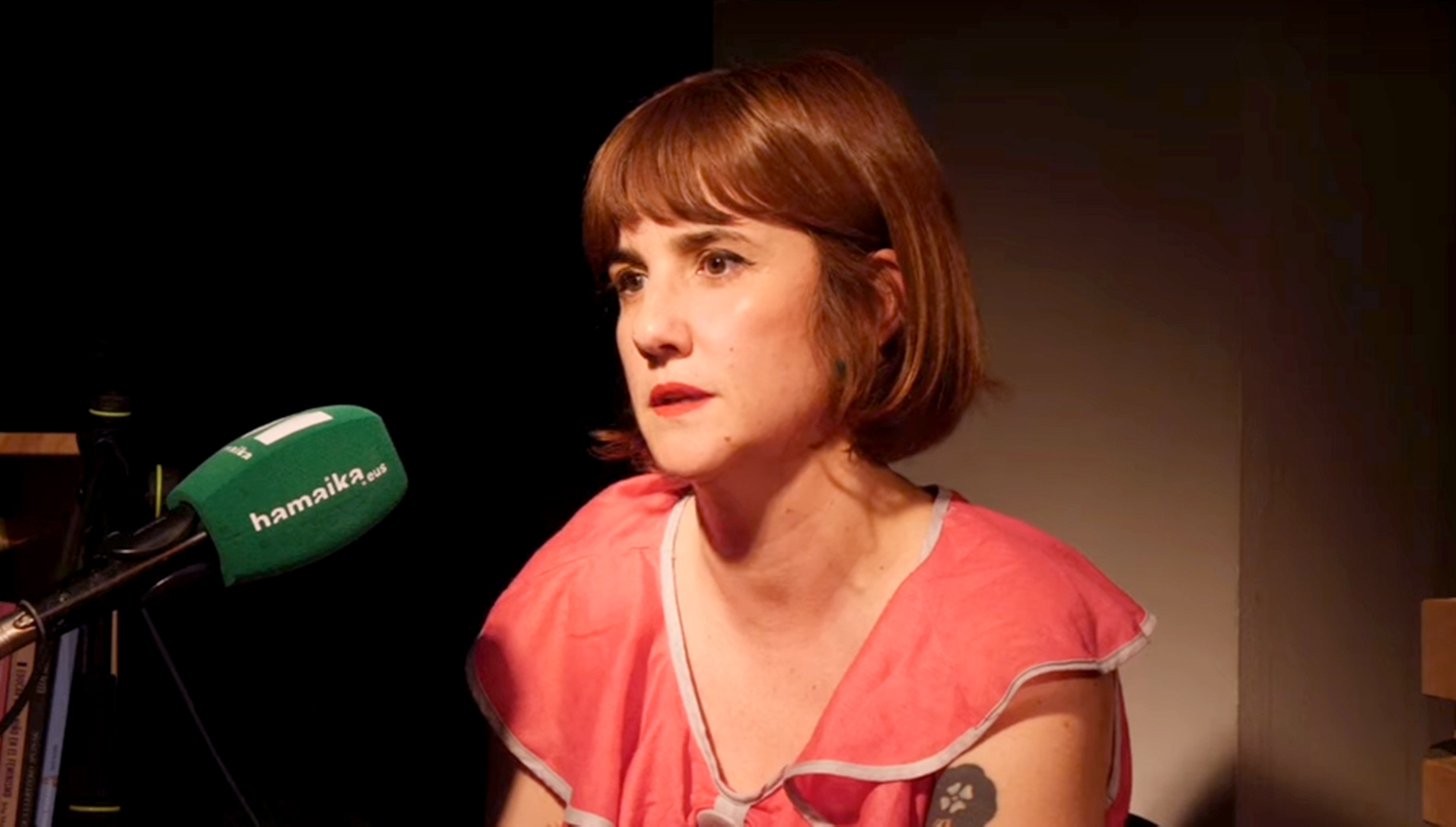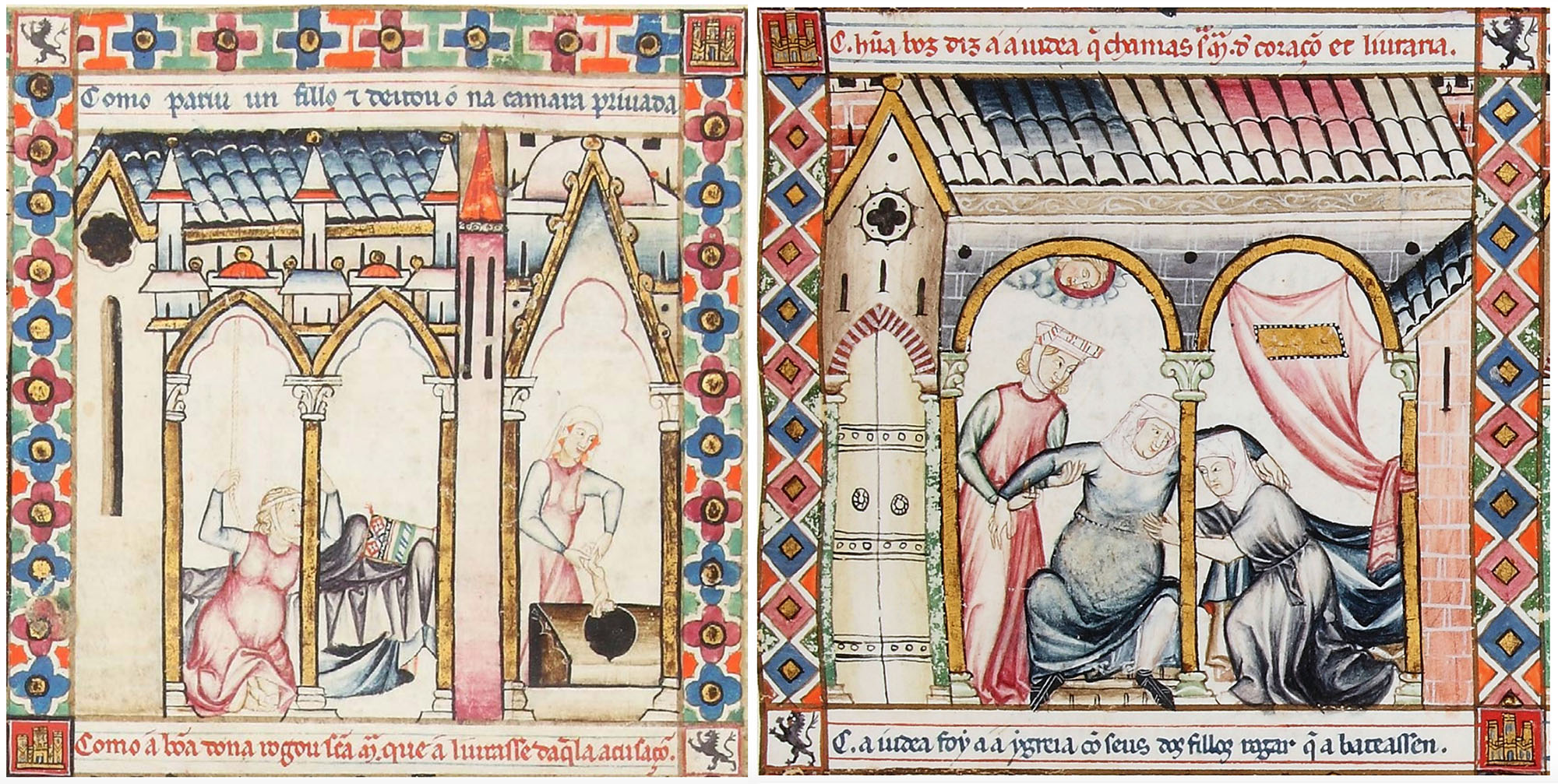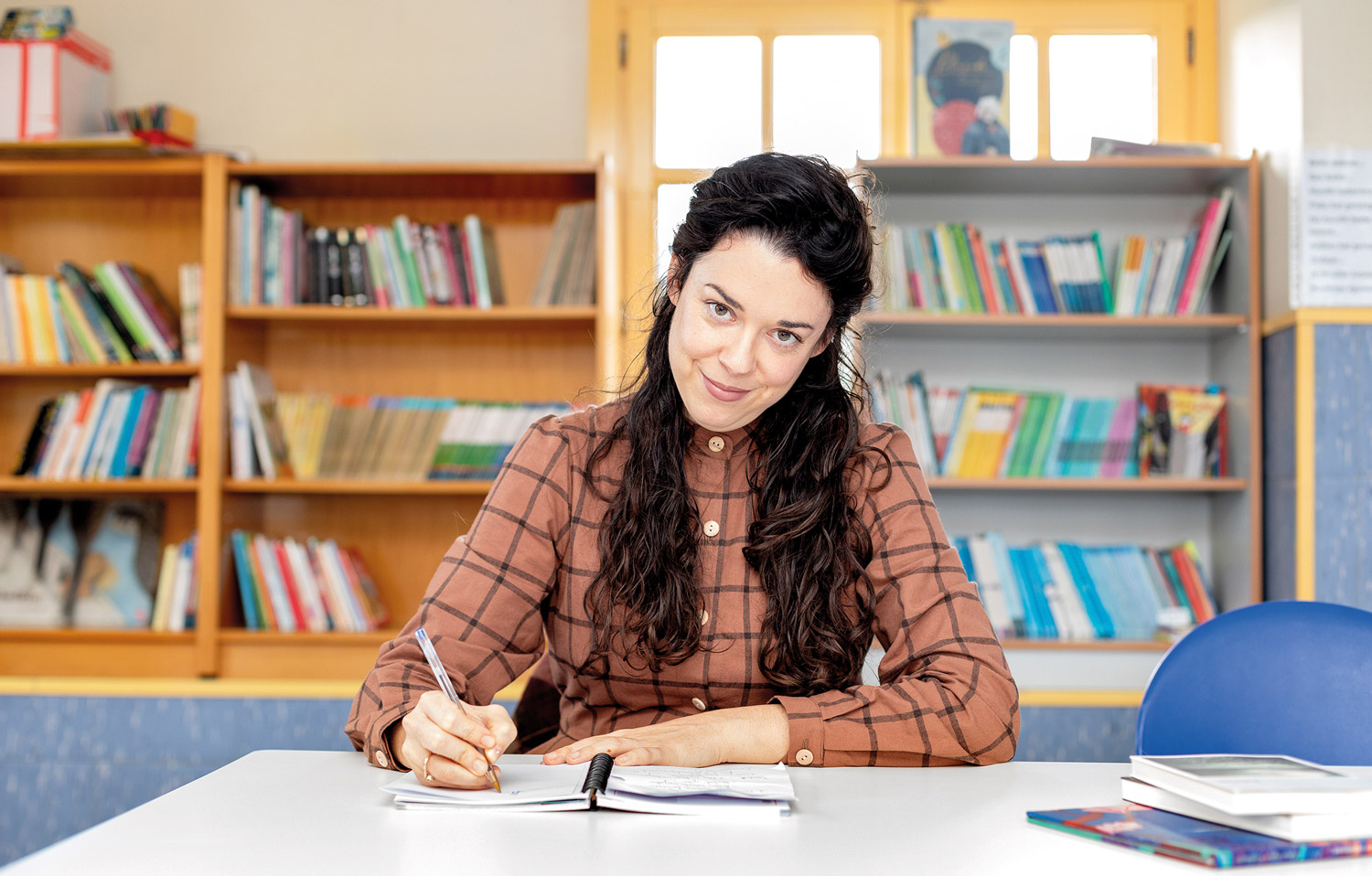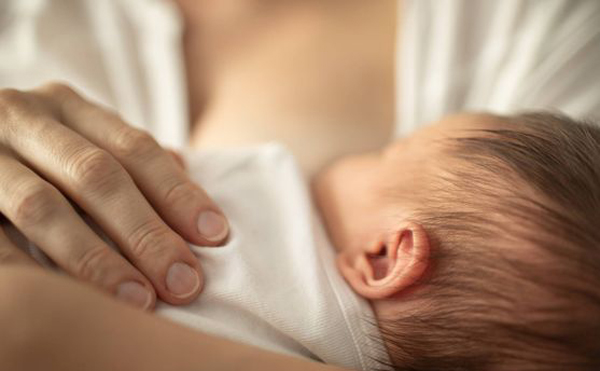What happened to you at the end of May?
I was pregnant and had just turned 31. I went to the hospital. She went to the consultation every week, but from the day before she did not notice the child. I was told that because I had many amniotic fluids, it might be normal not to notice it. I noticed it since the sixteenth week and it became very rare. However, I had an ultrasound to see where the child was. Then they saw that the child had no heartbeat.
I was alone, because of one of the small consequences left of the COVID-19 protocol, my mother was out. They called right away and came next to me. Then came the doctor in charge of the pregnancy in the previous two months. He cried with me. Another gave me the news, but he came and cried with me.
It looks like a small thing, but at the time it was very important to me. At the moment we have read the testimonies of so many women who have suffered obstetric violence above all. How important it is to find the doctors who are excited about you along the way.
They then told us that the best thing for me was vaginal delivery. I was also given the opportunity to go home to give news to my partner, because she was in another hospital, but I decided to stay there to start the process as soon as possible.
How did he receive the news?
I think no one is willing to receive such news, but it is true that we had a very rough road because in week 20 they saw problems for the fetus. However, I did not expect anything new. I still remember as the hardest moment, the pain was terrible.
How did it all start?
As I say, it all started in week 20. The radiologist at the hospital told us that he saw the fetus with several things, that one by one they were not serious, but that they could all be a sign of a syndrome.
So the next day, we were taken to the fetal unit of Cruces Hospital. There they are experts and manage high-risk pregnancies. They confirmed that there they saw something, because they never saw him full belly. His suspicions were esophageal atrecia.
Cardiologists, geneticists, gynecologists -- we were all seen. The geneticist advised us to perform amniocentesis to determine whether or not he had syndrome. The first results had to last for 15 days and the following months.
After those fifteen days, we were told that he had no syndrome according to the first results, and cardiologists also rejected heart disease.
However, they maintained suspected esophageal atresia. With all this information, we were put on the table a gray scale. Summing up a lot, on one side, in the darkest, as the child was very small, I could have asked the placenta a lot because it had to grow, and die because it was too small and on the other side, in the brightest, that the only problem of the child was to be small and not know how to swallow yet and therefore not see the full belly.
With all of this on the table and all of the middle options, we were given two days to decide whether to abort or not.
How did you assume that responsibility?
I was very lost because the decision was in my hands, I thought that in principle the results would be clearer and that the doctors would give me some recommendation that would help me make the decision. The truth is, doctors don't have magic balls to see the future, and I understand their attitude.
I was given a lot of information, as I said before, with a lot of gray tones, and I was left with some concrete ideas. For example, I decided a lot when I was told that there was no malformation in the autopsies of aborted children. So for example, it was very hard for me to make the decision to have an abortion.
In those two days that we had to make the decision, I intended to take the opinions of many people, I didn't want to make my decision, I asked for support. I wanted the opinion of the people who did not feel the kick of the child, thinking that it was going to be more objective, but there were also fears of their own and in some moments the debate was distorted. Indeed, many fears were unfounded.
I remember those days as the hardest of the whole process, and I would like to say that I was supported by women. It has been significant, although it is not something new... Especially when I received the worst news and it was not easy to show up at home, women have come. Mom, Marije, Maider, Leire, Nerea… I know that many men have had a very bad time, but they have not approached. It was very significant.
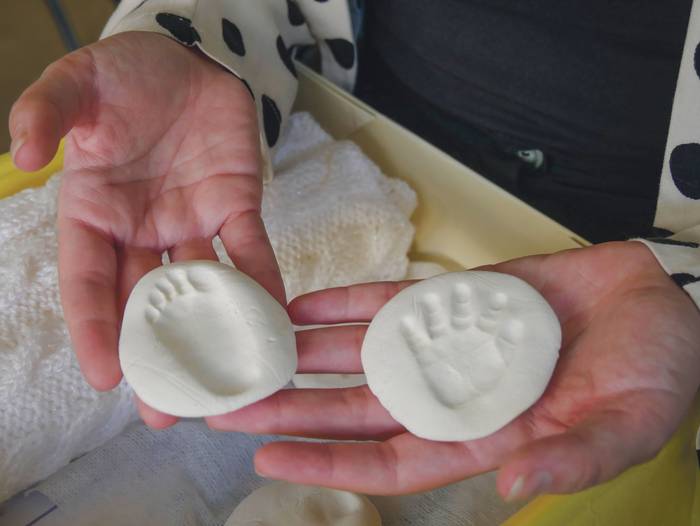
So what did he do?
By Friday morning I had to call the hospital to meet the deadlines. The day and time came and I couldn't call by phone, my mother called for me, because I couldn't stop crying. The gynecologist informed him that he had the possibility of going to midday, once the consultations were finished. The truth is, that was terrible for me.
This allowed me to go and solve my last doubts. It wasn't my gynecologist, it was another, but it responded to my eleven fears and questions written on a paper.
After making the decision to move forward, the peace of mind was enormous. I rested and it almost seemed like nothing happened. I took my pregnancy back with excitement and had three weeks of rest. During that time the child grew up, they saw that he was better and I was quieter. Then I had to go to the hospital every week.
What were those days like?
The days I had to go, I was pretty nervous. Although they saw something every week, the child was growing and advancing. We were told that week 25 to 28 would be the most critical. Apparently, most of the deaths occur in that interval, but they happened well. Sometimes bleeding did not get well, other times with total normality... every week we returned home with a new responsibility.
At week 31 I was told that I had to take out the amniotic fluid, because I had too much and that could cause the body to understand that the pregnancy is more advanced and that the delivery was premature and that it did not suit our child.
That Monday he was going to analyze the state of the fluid, but it was not necessary, as they saw that there was no heartbeat.
From the outside, it seems barbaric to force the woman to give birth to a child who is not alive, but from the point of view of the mother is not so, right?
When I was given the abortion opportunity in week 20, I asked the doctors how I was going to give birth and they didn't tell me. I was told that until I made the decision I didn't know how the process was going to be. My suspicion was that I had to give birth, but I also thought that maybe they should do so through an intervention, imagine how much ignorance is about this issue. But cesarean section is not the best for the female uterus, so they try to avoid it.
For me, that was the easiest thing, because of the fear we've been getting all our lives: that childbirth is very painful and hard. In addition, a friend told me I had to give birth, but I only knew the bad side, because I wouldn't have the joy of having a child. That was another reason to exclude abortion, the fear of childbirth.
As the weeks went by, as we had other concerns, the fear of childbirth was falling on ever more distant planes. And once I learned that the child died, all fears disappeared altogether.
There was no turning back and I don't know where I pulled out strength, but I'll take it all over. My father helped me. “You’ve given everything for that child and so far that has been our priority, but now it’s your priority.”
How does birth occur?
I got some pills, five times every three hours. If dilation did not occur, it was necessary to wait several hours and repeat the same process again. At some point I thought I was going to spend days there, but no, it was a night. I took the medication and at first it was slow, with a dilation of two centimeters, then four, but in the morning I accelerated the process and entered at 10:30 in the paritorium. He was born a quarter of an hour later.
I recognize it was a pleasure. It was not painful or dilation or delivery. I think I wanted to see the child, even if he was dead, that made it all easier. I find it strange to say that.
A few years ago all of this would have seemed like a macabre, but it was a very special moment.
What did you do during all these hours until it dilated?
Every time they entered the class, they explained to me the protocol and the decisions that had to be made, always in a very sweet way. To start with, they asked me if I wanted to meet the child or not. I was always reminded that I could change my mind at the last moment. The child's autopsy was also our decision.
On the other hand, for me, they had a box made up of an association to store the child's memories. If you want me to be taught, then the child's stuff is there, the marks of the feet, the tokilla... By the way, I was informed of the Esku hutsa and Umamanita associations.
Three nurses went through the classroom, some with more experience in cases like ours and others for the first time, also told us about it, please, if you get it wrong.
I have known that at the door of the room there was an image of a butterfly so that all the workers who accessed it were aware of our situation. The butterfly is a symbol of children who have died during pregnancy, childbirth or shortly after birth.
The treatment was very good, very respectful, and only words of thanks come to me.
Has that always been the case?
No, it seems that they now have a new protocol in the hospital and after hearing the testimonies of other women I would say it is recent. I gave birth in the hospital, but I don't know if in the rest. On the one hand, it seems that women who had to give birth using a sheet before, did not allow them to see the child and take it immediately after birth, now you have the options to see the child at birth, after dressing or not.
My initial decision was to get to know her after dressing me, but in childbirth I asked them to change their minds and put them in the cabinet. What I'm going to say looks like a lie, but it's been the best time in my life. Seeing the child was very nice. Our daughter was very formed, she was small, but very nice.
On the other hand, before, women were transferred to the “new mothers’ apartment”, along with a child born alive in the room. In my case, they took me to another plant, and less badly, because listening to the baby's cries caused me a lot of pain in those days.
I think that having lived this way has helped me to bring grief better, because I have good memories, among all the pain.
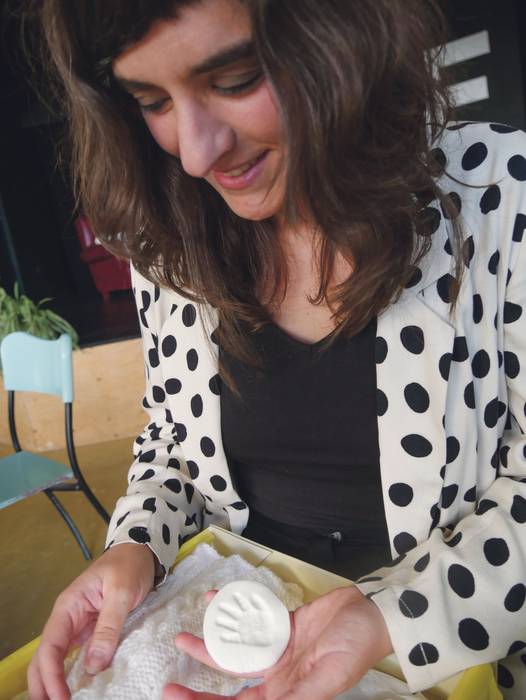
And after delivery?
They took me back to the room where I was dilating. Inside there were parents and a cousin and I told them they had the opportunity to see the child, because they would soon bring him. With some doubt, they decided to see it. This has been key to me. Very beneficial. That is, that child has received recognition, they have also seen it, it has existed.
These experiences have been covered in most cases, but they are of vital importance for the formation of wounds, our daughter was recognized. The cousin had in the furniture, for example, and although it seems like a small thing, I can't be more grateful because they were really nice moments. My aunt also came and we were all taking pictures. I also asked them to stay alone with the child, it was a very special moment.
Now it seems that there is more talk about this issue and many people have developed consciousness, many times I have been told that I am already a mother and that also helps.
How did you say hello to the child?
I greeted him twice, first in the hospital and then in the incinerator. By law it is your responsibility to incinerate or bury. If you are a believer, you can make a Mass. That is not my case, we only decided to incinerate it. For a bad understanding, however, I learned that when going to the incinerator there would be an hour of wastefulness.
The couple worried because to me seeing the child again would be painful and those responsible for the tanatorium allowed us to keep the box closed or open. For me, the situation was the opposite of being painful, as I had another time to be with the child.
I was afraid to forget, and I wanted to see my daughter again. Because I didn't know we had an hour-long evening, I hadn't invited anybody, and there we just got my parents, uncle and siblings together.
It's important for me to go to the tanatories to greet the people I want, and it was a shame that I didn't have the opportunity to spread it to people, because I know some of them would come to taste. However, two close friends came. They have recognised that it has been beneficial to them and we have made many reflections later.
Although it has been a hard process, all this has allowed us to strengthen our friendship and to get the best out of the worst. If we have suffered a lot, it has been because we want a lot, and that is nice. Now I have two sisters.
Has it helped you in grief?
At the moment it has done me well. I do not know if I will be depressed in a few months’ time, but for the moment I am fine. In this interview I do not want to convey that what I have done should be done. I have not talked to the experts about this, nor have I read anything. Therefore, I have not always done what it advises them, sometimes I have done what it does not advise them, which has come out of me.
By this I mean that everyone has to do whatever they want and can in the moment. In fact, seen from the outside, the decisions I've made can be very hard, but I haven't lived that way. It was the most natural.
It is true that I have not followed all the advice. For example, they say that having a room at home prepared or with toys, you have to store them. I have not done so. I like to see this there, and maybe in the future it can be used by another child. However, I have very few things, because I told people not to make gifts, before knowing that the child had problems, well, no.
It's what I'd like with this interview, to put the theme on the table so that I can speak naturally, so that if someone does have a similar thing, at least they don't sit alone.
I have talked many times with a friend about the death of children, often around ‘baby shower’ initiatives. The life of an unborn child is celebrated and we have done so among my friends. I am not very much in favour of these celebrations and I think it was better to do so a few months after birth, because of course life must be celebrated! It used to be like this, right? I am not in favour of baptisms, but I think it makes more sense.
I never thought a daughter was going to die for me, because she's not the most common, but it often happens and gets covered. What I mean is that something has become fashionable that can be painful on its own. I didn't go to the last one in the crew, and although I didn't know then, our son had already died.
The most common thing is to block it. But you immediately communicated it on social media. Did you reflect long before you spread it?
Yes, although it did the same day, it cost me. I talked to others about this, because I was so embarrassed. However, I wanted to publish to make the issue visible and somehow protect myself. I mean, I didn't want to get out on the street and people would congratulate me because I didn't have tripes.
It was about, above all, making it clear that there are such cases for people to realize. On social media you see a lot of pregnant women, like women who practice sports from day one half to day one. But there are women who have to pass the pregnancy in bed, who have great difficulty getting pregnant, who do not get pregnant, who have an abortion behind another or who live a perinatal or neonatal death. And this must also be seen.
Some have written private messages thanking me for leaving the subject, some have come from the street to tell their experiences, because they have experienced similar situations and others I have noticed without saying anything that they have experienced situations like these.
It has helped me get in with a lot of women, because I felt a lot of support when I was told their experiences. From here, thank you. I have seen that it has not happened to me alone, that I am not special. In this sense it has been nice, feeling protected. It is known that many women have lost their child, especially before the third month of pregnancy. I think pain is very similar.
At the beginning of pregnancy I went three or four times to the emergency room for bleeding. I was very scared, because I thought I had lost the child, and the pain I felt was very similar to what I felt afterwards. The same thing happened in the eighth, twelfth or twentieth week.
I have the feeling that in society it is widespread because I have given birth and that the size of the child is not a lube, that the pain is much greater, but the fear and pain I have suffered in the various phases has been very similar, do not think that the last has been the worst.
In addition, the thirty-first week is very hard because a lot of people have seen you tummy, because it's public, but I'm also sure that spending before the third month has to do a lot of damage, because your environment still doesn't know, and you just have to face the loss. I think we have to feel tremendous loneliness.
I want to send a strong hug to all these women. Surely they, like me, have lost the illusion and know which children of the village would be the same age, with whom they would go to school...
Pregnancy has another dimension. Create illusion among others, and suddenly, when it ends badly, it seems that somehow it is your responsibility.
That's what I've been afraid of right from the start. I am in favour of sharing everything, but I did not want to tell. Before I got pregnant, I read it on social media, which in the first 3 months of pregnancy doesn't count because there's a lot of potential to lose and the issue of losing the child is taboo, and it's true, I didn't want to tell it either.
There I experienced a contradiction. Week 8 I told my family, but I told them I wasn't going to say anything until I did the ultrasound for the twelfth week, the time of the news I wanted to delay. The reason for doing so was not to dislike the family, especially the mother and father. I was in terrible fear.
I keep in mind what I remember as one of the hardest moments after knowing that the child was dead. From the inside, I got forgiveness from my parents. I know it's not rational to say, but that's how it came out. I was thrilled – it was my first grandson – and I felt responsible for the bad news. I felt all responsibility for myself.
Having awakened joy in the environment, it's hard to see how people feel or get excited about you. I felt guilty about that pain, but it also heals over time.
How has it been to go home?
This situation is very harsh and sad, and in those first days of the hospital I thought that nothing would delude me again. I don’t plan, I don’t go to work, I don’t sing… But I’ve come home and it hasn’t.
Because I haven't had any memory with the child in that physical space. He lacks his kicks to sit in the gut, to speak to him. All the plans I suddenly thought disappear. I was afraid to come to some specific dates, which I imagined with him, but then I took him better than I thought.
Three days after delivery I stayed with a pregnant friend. We're very friendly and almost together we'd be mom. I imagine that when you're pregnant, that a friend's baby is dead must be very hard. So I turned to him to see that he was fine.
I even thought that meeting famous people was going to be tough, but it hasn't been so, in most moments they've been worse than me. There are those who have come to speak directly to me, there are those who have paused and also those who have approached me as if nothing had happened.
For me, the hardest part has been to be with the latter, because I, especially at first, wanted to talk about the child. I understand, however, that we should take this position, because I have done so often the same. Others have started me with “the same is not the time” or “I do not want to bring this issue into a festive atmosphere”. It's good for me to talk about this and to infinity I'm grateful for all the love received. A look, a kiss, a hug, a message… and a gesture on social media has helped me a lot. And no, those who brought the issue to me have not been wrong. Thank you very much.
There have been many who have been surprised to learn that I had to give birth, so I repeat, it is necessary to put this issue on the table.
Throughout the summer, a controversy also arises with a famous presenter of the Spanish State to tell his return to a normative body immediately after delivery, when he puts a photo on social networks. This moved me a bit. Reaching out to so many people with these kinds of messages frightens me. I'm living a semirondo, a semi-swirl with no children, and my gut is one of the few things I have left of that child. I don't want to go back to the previous body. My body has changed because it's been our son's refuge and I want it. More and more women love the changes that occur in our bodies. That too must be said.
Also in the summer there has been great news for families in which a child has died: the possibility of them registering, and we are doing so with some obstacles.
Finally, I would like to say that a few weeks ago I received my son's autopsy. In November we had an appointment to receive it, but by mistake it came to us by letter at the end of August. I did not take it wrong because I wanted to close the process as soon as possible, but it can be very painful to receive the autopsy of the child by letter and without explanations. As soon as we were called to the hospital, they brought us the appointment and apologized. We received all the explanations.



